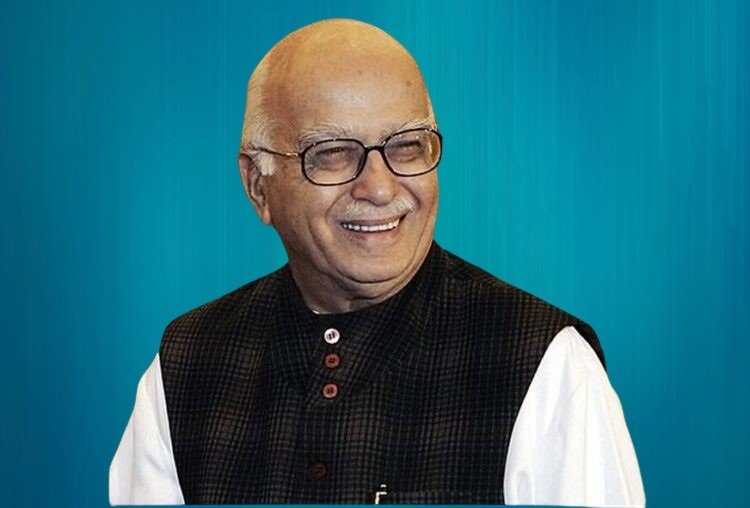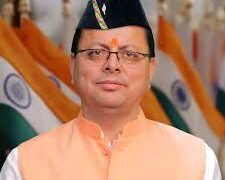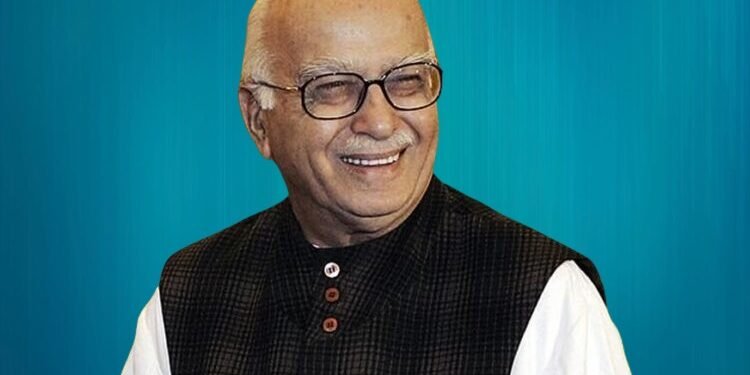
Mr. Lal Krishna Advani, a stalwart of Indian politics, will be the 50th recipient of the prestigious Bharat Ratna, the highest civilian award in India. His political journey spans decades, marked by significant contributions, controversial moments, and lasting impacts on the political landscape of the nation. This article delves into the life and career of L.K. Advani, highlighting his family background, religious inclinations, involvement in key events such as the Ayodhya movement, his relations with prominent leaders, and his overall contribution to shaping the Bharatiya Janata Party (BJP) and the country.
Brief Family Background:
Born on November 8, 1927, in Karachi, British India (now in Pakistan), Lal Krishna Advani hails from a Sindhi Hindu family. His early life was marked by the turbulence of the partition in 1947, which played a role in shaping his worldview. Advani’s family background reflects the diversity and complexity of India’s cultural and historical tapestry.
Inclination towards Hindutva and RSS:
Known for his deep-rooted connection to Hinduism, Advani has been actively involved in the construction of temples. He played a crucial role in the establishment of the Somnath Temple Trust in the early 1950s. His dedication to the cause of preserving and promoting Hindu heritage has been evident in his support for temple construction and restoration projects.
L.K. Advani has maintained a longstanding association with the Rashtriya Swayamsevak Sangh (RSS), a nationalist and volunteer organization. He shares a philosophical alignment with the RSS’s ideology of Hinduism and cultural nationalism. Throughout his career, Advani has often expressed admiration and support for the RSS’s role in preserving and promoting Indian values.
Advani joined the Rashtriya Swayamsevak Sangh (RSS) in 1941 at the age of fourteen. He became a pracharak conducting shakhas and became the secretary of the Karachi unit in 1947. After the partition of India, Advani was a pracharak in Rajasthan, working across Alwar,Bharatpur, Kota, Bundi, and Jhalawar districts until 1952.
Involvement in the Ayodhya Mandir and Babri Masjid Demolition:
L.K. Advani’s political journey reached a turning point with his active involvement in the Ayodhya Ram Janmabhoomi movement. The movement, centered around the demand to construct a Ram temple at the site believed to be the birthplace of Lord Ram in Ayodhya, gained significant momentum in the late 1980s. Advani’s Rath Yatra in 1990 aimed at mobilizing support for the cause, eventually leading to the demolition of the Babri Masjid on December 6, 1992.
The Babri Masjid demolition remains a controversial chapter in Advani’s political career, with the event triggering nationwide debates on secularism, religious tolerance, and the role of political leaders in communal tensions.
Relationship with Atal Bihari Vajpayee:
L.K. Advani shared a close and enduring relationship with Atal Bihari Vajpayee, another towering figure in Indian politics. Together, they formed a formidable duo within the BJP, with Advani often being seen as the ideological and organizational force, complementing Vajpayee’s charismatic and statesman-like image. This partnership played a pivotal role in shaping the BJP and its rise to prominence.
Relationship with Narendra Modi:
Advani’s relationship with Narendra Modi, the current Prime Minister of India, has evolved over the years. While both leaders belonged to the same political party, there were reported differences, especially during Modi’s rise to power within the BJP. Despite occasional divergences, Advani’s role in mentoring and shaping the political landscape paved the way for leaders like Modi to take center stage.
Contribution to Shaping the Bharatiya Janata Party and Country:
L.K. Advani played a pivotal role in the evolution of the Bharatiya Janata Party. As one of the founding members, he contributed significantly to the party’s ideological framework, organizational structure, and electoral strategies. His commitment to the principles of nationalism, cultural heritage, and Hindutva ideology helped shape the BJP into a political force to be reckoned with.
Advani’s political career is adorned with several notable achievements. He served as a Member of Parliament (MP) for multiple terms and held ministerial portfolios in various governments. He served as the Deputy Prime Minister of India from 2002 to 2004 and played a crucial role in the National Democratic Alliance (NDA) government.
L.K. Advani’s contributions extend beyond party politics. His role in the realm of governance has left a lasting impact on the country. As the Home Minister of India, he played a key role in shaping policies related to internal security and law enforcement. His efforts in maintaining national security and order were crucial during his tenure.
Advani’s political journey commenced at the grassroots level. His subsequent entry into national politics saw him become a Member of Parliament (MP) and hold various ministerial positions, including Information and Broadcasting, Home Affairs, and Deputy Prime Minister.
Famous Campaigns and Yatras Driven by Him in His Political Career:
L.K. Advani’s political career is studded with impactful campaigns that left an indelible mark on Indian politics. The Rath Yatra in 1990, aimed at garnering support for the construction of the Ram temple in Ayodhya, was a landmark campaign that mobilized masses and shaped the political narrative of the time. The Bharat Suraksha Yatra in 2006, which focused on issues of national security and terrorism, also gained significant attention.
- Ram Rath Yatra
- Janadesh Yatra
- Bharat Suraksha Yatra
- Swarna Jayanti Rath Yatra
- Bharat Uday Yatra
Why He Truly Justifies Bharat Ratna:
The announcement of L.K. Advani as the 50th recipient of the Bharat Ratna is a recognition of his immense contributions to Indian politics and governance. His role in shaping the BJP, his dedication to preserving cultural heritage, and his significant impact on the political landscape justify this honor. Despite controversies, Advani’s legacy as a leader who played a crucial role in defining the political discourse in India is undeniable. Let’s look at his journey through the below picture:-

Advani’s journey encapsulates the evolution of Indian politics, from the early days of the Janata Party to the emergence of the BJP as a major political force. His commitment to nationalism, governance, and cultural preservation has left an enduring imprint on the country’s socio-political fabric. The Bharat Ratna for L.K. Advani acknowledges not only his political achievements but also his role as a statesman and visionary leader who contributed to the nation’s progress and identity.























